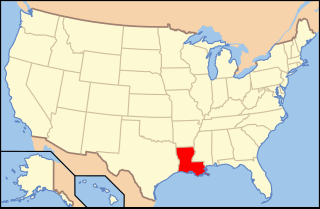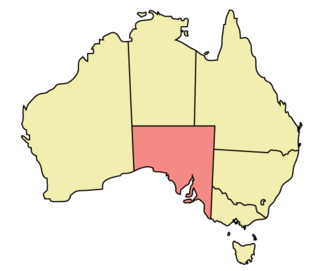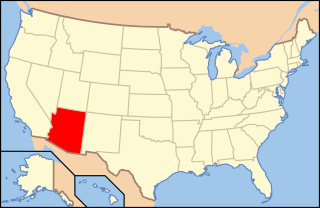Related Research Articles

The adoption of children by lesbian, gay, bisexual, transgender (LGBT+) people may be in the form of a joint adoption by a same-sex couple, adoption by one partner of the other's biological child, or adoption by a single LGBT+ person. Joint adoption by same-sex couples is legal in twenty-seven countries as well as several subnational jurisdictions and dependent territories. Furthermore, some form of step-child adoption is legal for same-sex couples in five additional countries.

Lesbian, Gay, Bisexual, and Transgender (LGBT) rights in Israel are considered the most developed in the Middle East. Although same-sex sexual activity was legalized in 1988, the former law against sodomy had not been enforced since a court decision in 1963. Israel became the first country in Asia to recognize unregistered cohabitation between same-sex couples, making it the first country in Asia to recognize same-sex unions in any capacity. Although same-sex marriages are not performed in the country, Israel recognizes same-sex marriages performed elsewhere. Discrimination on the grounds of sexual orientation was prohibited in 1992. Same-sex couples are allowed to jointly adopt, following a landmark court decision in 2008. Previously, stepchild adoption, as well as limited co-guardianship rights for non-biological parents, were permitted. LGBT people are also allowed to serve openly in the military.

Lesbian, gay, bisexual, transgender (LGBT) rights in the Netherlands have been some of the most progressive in the world. Same-sex sexual activity was legalized in 1811 after France invaded the country and installed the Napoleonic Code, erasing any remaining sodomy laws and no more were enacted after the country received independence. An age of consent equal with that of heterosexual activity was put in place in 1971. During the late 20th century, awareness surrounding homosexuality grew and society became more tolerant of gay and bisexual people, eventually leading to its declassification as a mental illness in 1973 and a ban on discrimination based on sexual orientation in the military. The Equal Treatment Act 1994 bans discrimination on account of sexual orientation in employment, housing, public accommodations, and other areas. This was extended in 2019 to include discrimination based on gender identity, gender expression and sex characteristics. After the country began granting same-sex couples domestic partnerships benefits in 1998, the Netherlands became the first country in the world to legalize same-sex marriage in 2001. Same-sex joint and stepchild adoption are also permitted, and lesbian couples can access IVF as well.

Lesbian, gay, bisexual, transgender (LGBT) rights in Italy significantly advanced in the 21st century, although LGBT people may still face some legal challenges not experienced by non-LGBT residents. According to ILGA-Europe's 2021 report, the status of LGBT rights in Italy is the worst among Western European countries.

Lesbian, gay, bisexual and transgender (LGBT) rights in Portugal improved substantially in the 2000s and 2010s and are now among the best in the world. After a long period of oppression during the Estado Novo, Portuguese society has become increasingly accepting of homosexuality, which was decriminalized in 1982, eight years after the Carnation Revolution. Portugal has wide-ranging anti-discrimination laws and is one of the few countries in the world to contain a ban on discrimination based on sexual orientation in its Constitution. On 5 June 2010, the state became the eighth in the world to recognize same-sex marriage. On 1 March 2011, a gender identity law, said to be one of the most advanced in the world, was passed to simplify the process of sex and name change for transgender people. Same-sex couples have been permitted to adopt since 1 March 2016.

Lesbian, gay, bisexual, transgender (LGBT) rights in Scotland are generally in line with the rest of the United Kingdom, which have evolved extensively over time and are now regarded as some of the most progressive in Europe. In both 2015 and 2016, Scotland was recognised as the "best country in Europe for LGBTI legal equality".

Lesbian, gay, bisexual, and transgender (LGBT) persons in the U.S. state of Wyoming may face some legal challenges not experienced by non-LGBT residents. Same-sex sexual activity has been legal in Wyoming since 1977, and same-sex marriage was legalized in the state in October 2014. Wyoming statutes do not address discrimination on the basis of sexual orientation and gender identity; however, the U.S. Supreme Court's ruling in Bostock v. Clayton County established that employment discrimination against LGBT people is illegal under federal law. In addition, the cities of Jackson and Laramie have enacted ordinances outlawing discrimination in housing and public accommodations.

Lesbian, gay, bisexual, and transgender (LGBT) persons in the U.S. state of Louisiana may face some legal challenges not experienced by non-LGBT residents. Same-sex sexual activity is legal in Louisiana, and same-sex marriage has been recognized in the state since June 2015 as a result of the Supreme Court's decision in Obergefell v. Hodges.

Lesbian, gay, bisexual, and transgender (LGBT) rights in Queensland have advanced significantly from the late 20th century onwards, in line with progress on LGBT rights in Australia nationally. Private consensual sex between men has been legal in the state since 1991, with lesbian sexual acts never criminalised. The age of consent was equalised to 16 years for all sexual acts in 2016. Sexuality and gender identity are protected attributes under both state and federal anti-discrimination laws. Same-sex couples may marry under Australian law, enter into a civil partnership under state law or live together in an unregistered de facto relationship. Same-sex couples may become parents through adoption, foster care, altruistic surrogacy and, for lesbian couples, IVF. In 2020, Queensland became the first jurisdiction within Australia to pass a law banning conversion therapy, with a maximum penalty of 18 months imprisonment and fines.

Lesbian, gay, bisexual, and transgender (LGBT) persons in New Jersey have the same rights and responsibilities as heterosexuals. LGBT persons in New Jersey enjoy strong protections from discrimination, and have had the right to marry since October 21, 2013.

Lesbian, gay, bisexual, and transgender (LGBT) persons in the Australian state of New South Wales have most of the same rights and responsibilities as heterosexual cisgender people.

The rights of lesbian, gay, bisexual, and transgender (LGBT) people in the Australian state of South Australia are advanced and well-established. South Australia has had a chequered history with respect to the rights of LGBT people. Initially, the state was a national pioneer of LGBT rights in Australia, being the first in the country to decriminalise homosexuality and to introduce a non-discriminatory age of consent for all sexual activity. Subsequently, the state fell behind other Australian jurisdictions in areas including relationship recognition and parenting, with the most recent law reforms regarding the recognition of same-sex relationships, LGBT adoption and strengthened anti-discrimination laws passed in 2016 and went into effect in 2017.

The U.S. state of New York has generally been seen as socially liberal in regard to lesbian, gay, bisexual, transgender (LGBT) rights. The advocacy movement for LGBT rights in the state has been dated as far back as 1969 during the Stonewall riots in New York City. Same-sex sexual activity between consenting adults has been legal since the New York v. Onofre case in 1980. Same-sex marriage has been legal statewide since 2011, with some cities recognizing domestic partnerships between same-sex couples since 1998. Discrimination protections in credit, housing, employment, education, and public accommodation have explicitly included sexual orientation since 2003 and gender identity or expression since 2019. Transgender people in the state legally do not have to undergo sexual reassignment surgery to change their sex or gender on official documents since 2014. In addition, both conversion therapy on minors and the gay and trans panic defense have been banned since 2019. Since 2021, commercial surrogacy has been legally available within New York State.

Illinois is seen as one of the most progressive states in the United States in regard to lesbian, gay, bisexual and transgender (LGBT) rights and often viewed as one of the most liberal states in the Midwestern United States. Same-sex sexual activity has been legal since 1962, after Illinois became the first U.S. state to repeal its sodomy laws. Same-sex marriage was banned by statute in 1996, but has since been legalized after a law allowing such marriages was signed by Governor Pat Quinn on November 20, 2013 and went into effect on June 1, 2014. Civil unions have been recognized since 2011, and same-sex couples are also allowed to adopt. Additionally, discrimination on the basis of sexual orientation and gender identity is banned in employment, housing, credit and public accommodations, and conversion therapy on minors has been outlawed since 2016.

Lesbian, gay, bisexual, and transgender (LGBT) people in the U.S. state of Arizona may face legal challenges not experienced by non-LGBT residents. Same-sex sexual activity is legal in Arizona, and same-sex couples are able to marry and adopt. Nevertheless, the state provides only limited protections against discrimination on the basis of sexual orientation and gender identity. Several cities, including Phoenix and Tucson, have enacted ordinances to protect LGBT people from unfair discrimination in employment, housing and public accommodations.

Lesbian, gay, bisexual, and transgender (LGBT) persons in the U.S. state of Mississippi face legal challenges and discrimination not experienced by non-LGBT residents. LGBT rights in Mississippi are limited in comparison to other states. Same-sex sexual activity is legal in the state and same-sex marriage has been recognized since June 2015 in accordance with the Supreme Court's decision in Obergefell v. Hodges. State statutes do not address discrimination on the basis of sexual orientation and gender identity; however, the U.S. Supreme Court's ruling in Bostock v. Clayton County established that employment discrimination against LGBT people is illegal under federal law. The state capital Jackson and a number of other cities provide protections in housing and public accommodations as well.
Law in Australia with regard to children is often based on what is considered to be in the best interest of the child. The traditional and often used assumption is that children need both a mother and a father, which plays an important role in divorce and custodial proceedings, and has carried over into adoption and fertility procedures. As of April 2018 all Australian states and territories allow adoption by same-sex couples.
LGBT parents in Canada have undergone significant progress in terms of both legal and social acceptance. Same-sex couples who wish for parenthood now enjoy equally the possibilities, responsibilities and rights of opposite-sex couples. Following the nationwide legalization of same-sex marriage in 2005, the number of LGBT families in Canada has increased substantially, paving the way for same-sex couples' aspirations of having their own children. Legal methods of assisted reproduction range from insemination via IVF through to surrogacy arrangements.

The following is a timeline of lesbian, gay, bisexual, and transgender (LGBT) history in the 21st century.

LGBT reproduction refers to lesbian, gay, bisexual, and transgender (LGBT) people having biological children by means of assisted reproductive technology. It is distinct from LGBT parenting, which is a broader cultural phenomenon including LGBT adoption. In recent decades, developmental biologists have been researching and developing techniques to facilitate same-sex reproduction.
References
- ↑ Graeme Coleman, "Online resource for gay dads is born". xtramagazine.com. 11 August 2017. Retrieved 10 May 2014.
- ↑ Lauren La Rose, "New website Gays With Kids offers support to gay fathers". thestar.com. 16 June 2014. Retrieved 30 August 2021.
- ↑ "LIFE Gays With Kids: The Gayest I've Ever Been". inmagazine.ca. 1 February 2016. Retrieved 10 May 2014.
- ↑ Gary Hurtubise, "Navigating Fatherhood". gayparentmag.com. 11 August 2017. Retrieved 30 August 2021.
- ↑ Kira Brekke and Gemma Sapwell, "Sh*t Dads Are Sick Of Hearing". huffingtonpost.co.uk. 20 June 2016. Retrieved 30 August 2021.
- ↑ Lauren La Rose, "New website offers support to gay fathers". The Hamilton Spectator. thespec.com. 17 June 2014. Retrieved 30 August 2021.
- ↑ "Pop culture". nbcnews.com. 25 July 2016. Retrieved 30 August 2021.
- ↑ Lucas Thompson, "My Two Dads: Gay Fathers Have Much to Celebrate". nbcnews.com. 17 June 2016. Retrieved 30 August 2021.
- ↑ "How This Year's Outstanding Blog Nominees Are Using Their Platform to Elevate the LGBTQ Community". glaad.org. 16 April 2019. Retrieved 30 August 2021.
- ↑ Dave Mcginn, "Dads who write on fatherhood share their fears, lessons and best moments". theglobeandmail.com. 16 June 2014. Retrieved 30 August 2021.
- ↑ Evan Porter, "You need to see these adorable photos of gay dads with their kids". theglobeandmail.com. 16 June 2014.
- ↑ "Gays With Kids". aumag.org. 9 January 2015.